With both the Playstation 4 and the Xbox One releasing last November, 2013 sort of marked the end of an era, although you wouldn't notice from the quality of the games. There was a nice mix of excellent triple AAA titles and innovative independent releases that made the year a fun and exciting experience the whole way through. I know it was a great year because there were so many really good games in great franchises that didn't even make the list.
Best of 2013
10. The Stanley Parable (PC)
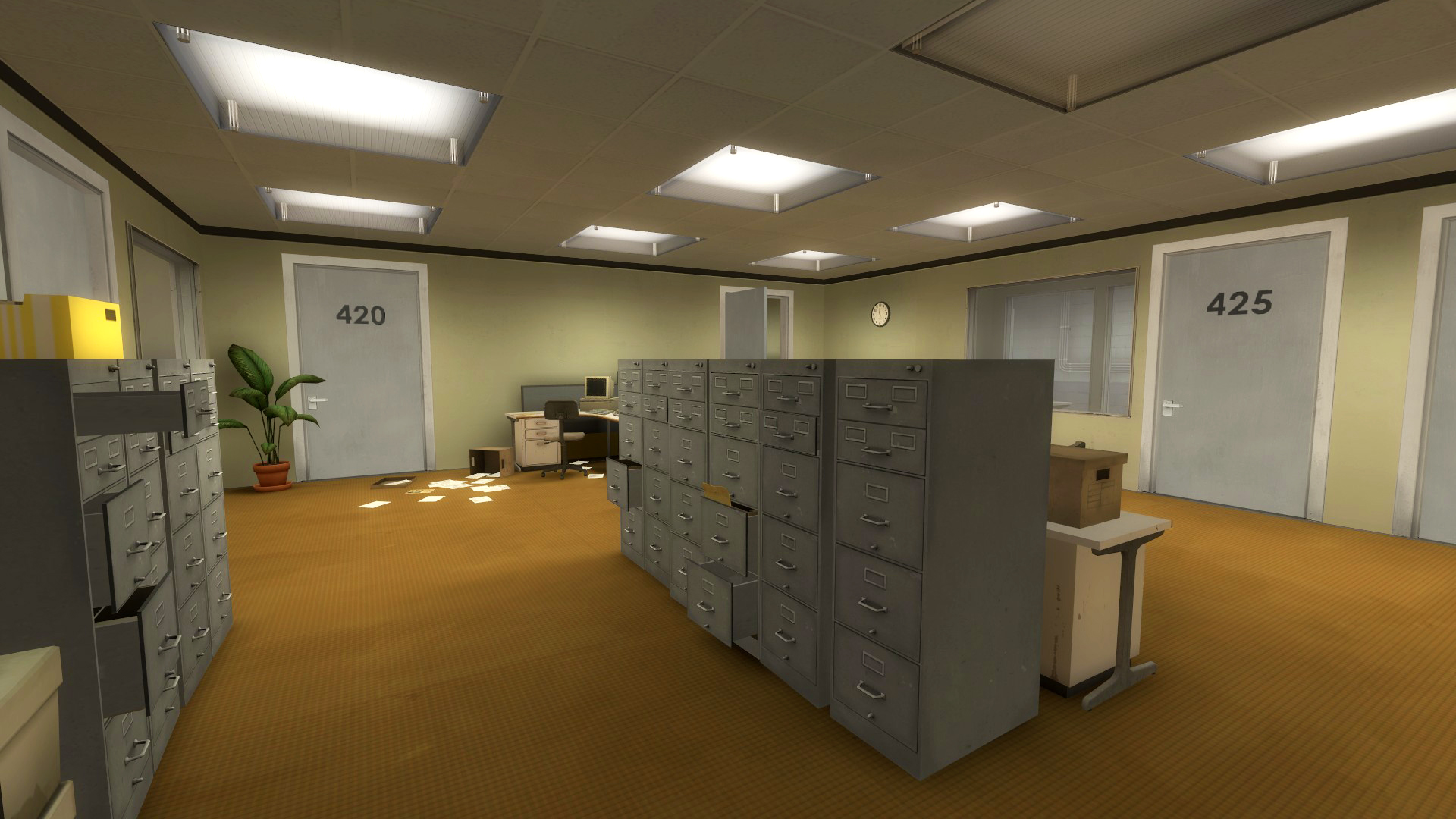
The Stanley Parable was originally a free Source engine mod, but in its conversation to full product it was completely overhauled and remade into what it is now. What it is now is a bit harder to describe. You play as (or are) Stanley, an office worker who one day finds himself alone in the building. A narrator describes your actions before you do them, and you can follow all of his directions to quickly reach an easy yet unsatisfying conclusion. But the real meat of the game is in not doing what you're told. There are tons of ways to disobey the narrator hounding your every move, and they usually result in something interesting, be it a new place you can go, a new insight into game design, or just a funny rant. The game's mix of playing with and subverting expectations while commenting on the nature of choice and interactivity in games is never boring, and the sense of humor keeps it light. You'll definitely understand what the game is doing better if you have a greater than average understanding of gaming history and culture, but anyone can pick it up and at least get a few laughs.
9. Saints Row IV (Multi)

Saints Row: The Third is the artistic pinnacle of the Saints Row series, as weird as it is to use the word "artistic" in that context. In comparison, IV sort of feels like a bloated expansion pack or downloadable add-on, taking place in the same city and completely screwing with the series' framework of open world crime game by turning you into a super hero. In case you don't know, the game's basic premise involves (1) the gang's boss becoming President of the United States in the opening sequence, followed by (2) aliens invading Earth, which results in your capture and insertion into (3) a computer simulation of the city, which you are able to hack in order to essentially (4) gain a variety of super powers. It's nuts, in a series which is known for redefining what nuts actually means in video games. It's also incredibly fun to play, which is the key. I like the other Saints games I've played, but for the most part what you're actually doing is driving and shooting. In Saints Row IV you're running at hyper speed, leaping many stories at once, and basically breaking the world for your own amusement. It's just about as pure as enjoyment can be in the medium. As a bonus, they still have a great handle on the characters, and they're still a lot of fun to hang out with.
8. Super Mario 3D World (Wii U)
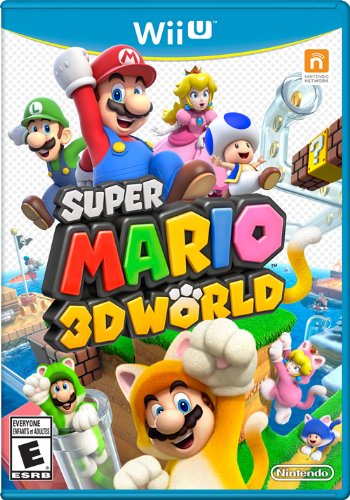
Along with a couple other releases, Super Mario 3D World justifies owning a Wii U, even if the system's future for anything resembling competent third party support looks bleak. It expands on the core gameplay of Super Mario 3D Land, which mixed elements of both 2D and 3D Mario games into a slick and satisfying experience, adds 4 play support and HD graphics, and basically taps the basic mechanics for as much action as they can handle. It's not the greatest Mario game ever - having to support multiple players of varying skill inherently limits the potential of the game design. But it's still really fun to play, even alone, though with friends or family is certainly preferable. It's amazing how this series manages to still be exciting so many years later with the same core ideas.
7. Tomb Raider (Multi)
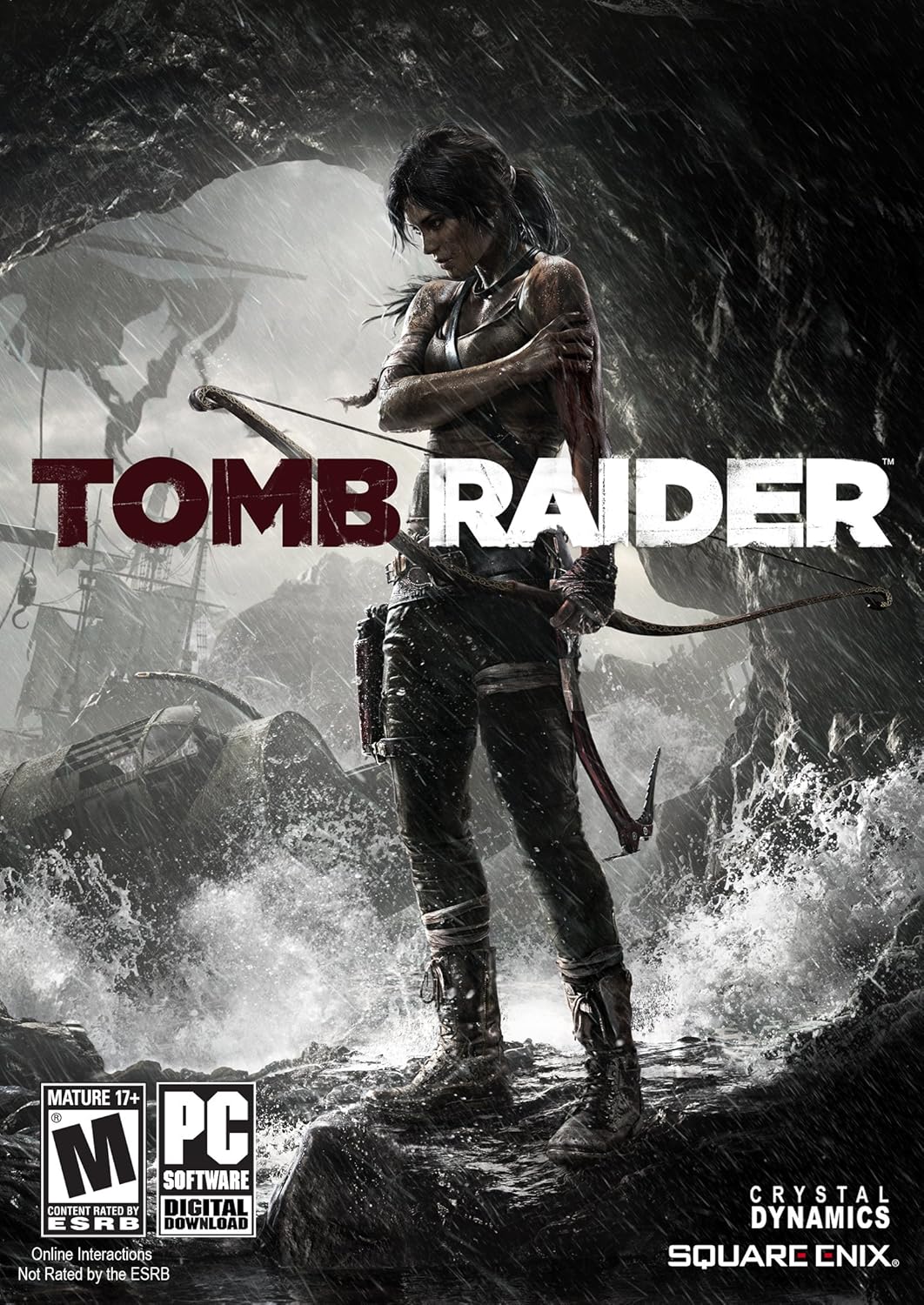
The cycle of innovation and imitation in games can be a pretty funny thing. When Uncharted: Drake's Fortune came out, featuring gunplay, climbing through exotic environments, and solving puzzles in ancient tombs, it was hard to miss the influence from the Tomb Raider series. And now with this new Tomb Raider featuring a more down-to-earth take on its protagonist, cover-based shooting, and a focus on quick traversal over thoughtful rumination on your surroundings, it's hard to miss the influence coming from the other direction. But Tomb Raider's isn't quite an Uncharted clone, having as it does a greater focus on survival, backtracking, and an essential desperation that goes a long way to define it. I wouldn't say either approach is really better, and I'm glad we're getting multiple takes on a central concept that is just so darn appealing. The new Tomb Raider still feels like Tomb Raider while managing to stay modern, and I find it hard to say it's not the most approachable and well-executed game in the series.
6. Grand Theft Auto V (Multi)
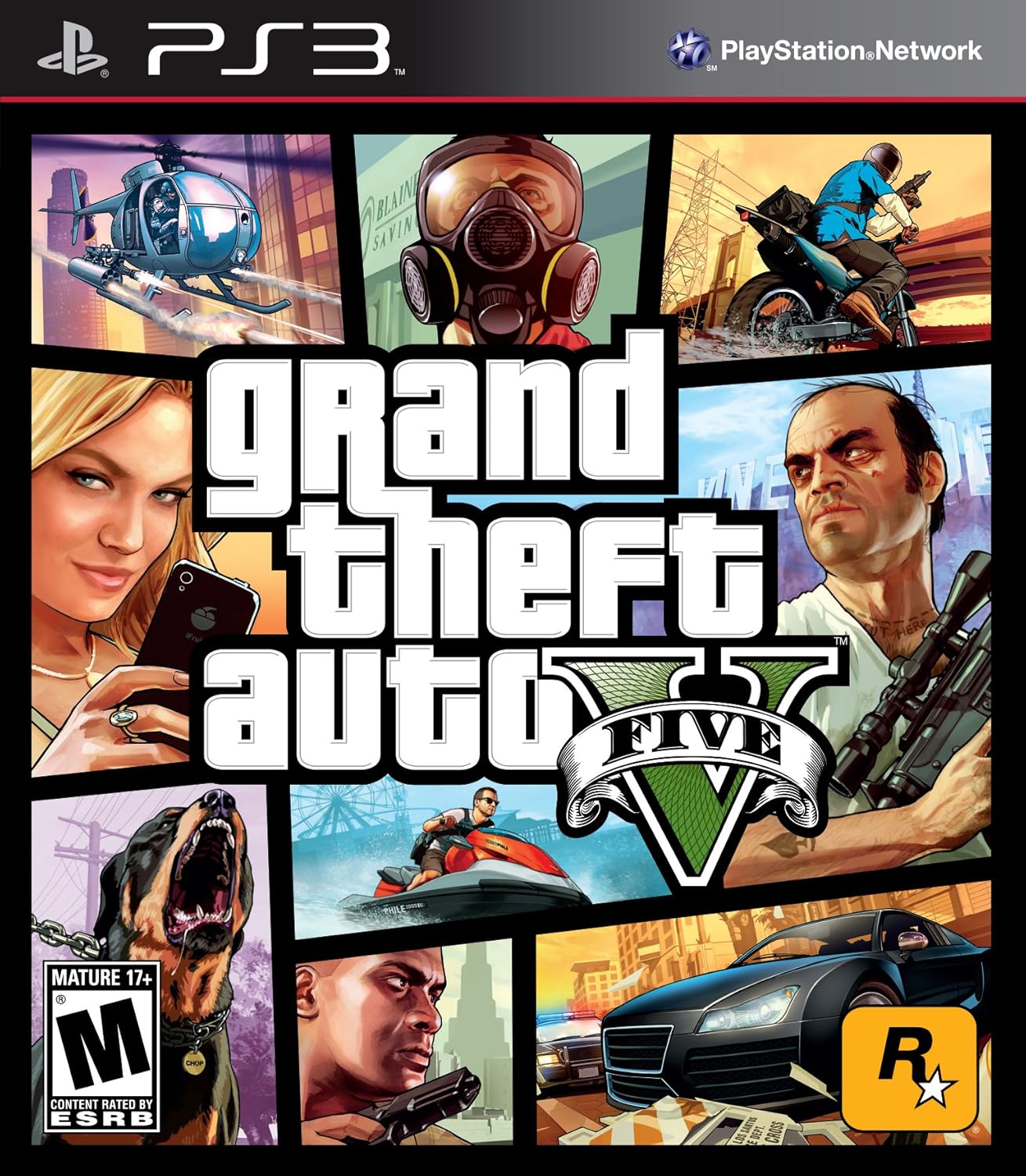
Grand Theft Auto V is the most fun I've had with the series in nine years. In many ways, the game has problems, from its questionable ethics to some weird design snags that other open world games have already solved to a plot that goes a lot of places that it probably doesn't need to. It's kind of a mess, really. But San Andreas is one of the most fully realized worlds I've ever seen in a video game, from its picturesque winding mountain roads to its gaudy downtown storefronts. It really feels like a huge place. And it's honestly a fun place to hang around in. The main gameplay focuses on driving to different places to shoot different people from behind cover, and in that way it's not much different from the last game. But there's a lot more big moments this time around that you remember for months afterward, and it all handles a little better, and the game's tone matches its content with less confusion. And the heists... well, the heists are awesome. I only wish there were more.
5. Brothers: A Tale of Two Sons (Multi)

People like to make fun of the story in games a lot. And a lot of times they're right. But there are certain things that games can do with storytelling that just aren't possible in film, novels, or any other medium. Brothers is a prime example of that. In it, you control two brothers at once, each hand controlling one or the other. It may sound like that gets confusing or frustrating, and it does from time to time. But for the most part it's manageable. At least enough to get you through the few hours it takes to complete the story. During that time it's a solid puzzle game, with clever and intuitive solutions and some satisfying temporary mechanics. The game's real strength though is the story, which is touching, unforgettable, and much, much more effective because it's a video game. Play it and you'll see why.
4. Bioshock Infinite (Multi)
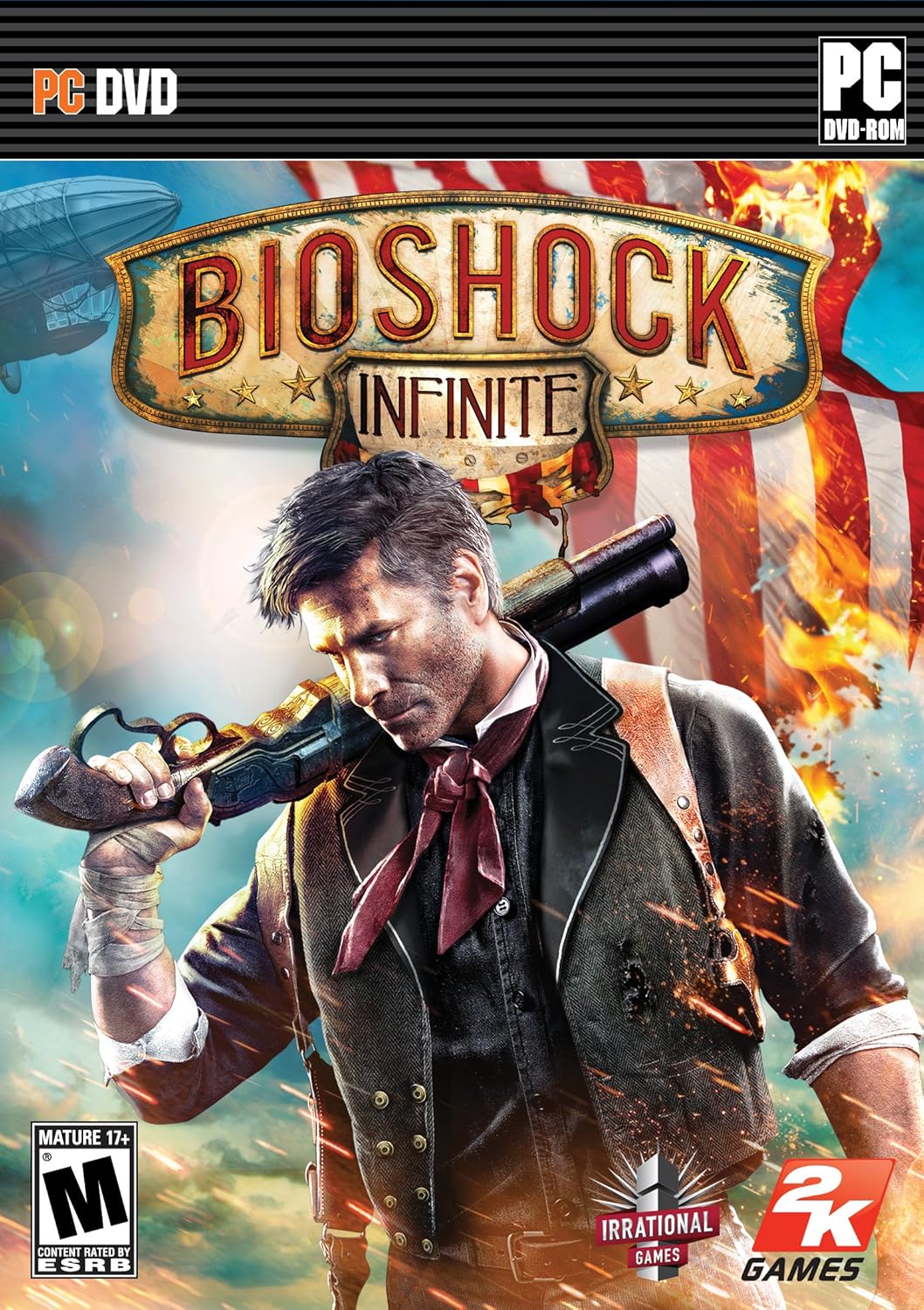
I was honestly surprised by the tons of criticism this game received starting immediately after and lasting for a long time following its release. The reactions are strong and generally understandable, but I have a hard time agreeing with them. I think people wanted things from Infinite that it wasn't prepared to give them. It has a lot of subjects it touches on without fully exploring, from racism to totalitarianism and all kinds of things that would be hard to do justice to while trying to be an action game and tell a crazy sci-fi story. And ultimately, Bioshock Infinite wants to be an action game that tells a crazy sci-fi story. The shooting at its best provided some of gaming's best thrills this year, the world of Columbia and its inhabitants are well-conceived and fun to look at, and the main characters are excellently conceived and portrayed by the writers and voice actors, anchoring a plot that at times is over the top but ultimately serves its primary goals well. Infinite is messy, but I think it's a pretty wonderful mess.
3. Gone Home (PC)

Gone Home's designer and writer Steve Gaynor actually worked on the Bioshock series for a while, but he left it to do something smaller and more personal. I'm glad he did, because Gone Home is special. It's another game that tells a story in a way only a game can, having you uncover its details through examining an environment rather than actually seeing anything play out in front of you. People talk about it not being a "real game", whatever that means, and saying that the story would be better as a book or a movie. This is nonsense. A video game is the only thing Gone Home could possibly be. It shows that you can use the familiar mechanics of looking at and touching things to tell a story you don't see in mainstream games, and reveals how silly it is that you don't. There's no reason every game has to involve killing hundreds of people to get a point across, and yet there are still people out there insisting that there is. Gone Home gave me one of the best and most authentic emotional experiences I had in 2013, and I wish more people were open to seeing it the way I did.
2. The Legend of Zelda: A Link Between Worlds (3DS)
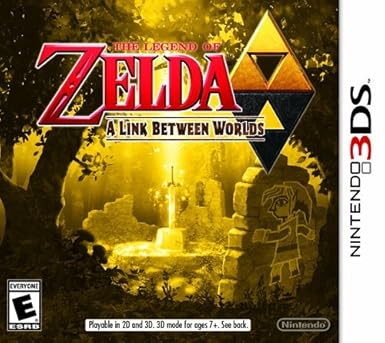
My friend mentioned that whenever a new Zelda game comes out, a lot of people crap on the previous one. This is mostly true. I don't think it will happen with A Link Between Worlds though, because it seems like almost everyone who has played it describes it "the best Zelda in X years", where X is the number of years since the last Zelda game they truly loved. In my case, A Link Between Worlds is my favorite Zelda game since Majora's Mask, and since that's my favorite video game ever... yeah, I like A Link Between Worlds a lot. It takes the basic framework and world design from A Link to the Past, a fan favorite, and modernizes it with the best controls the series has ever had (yes, ever (except for the 3DS' terrible form factor)) and many updates to the functionality. It's also the least restrictive Zelda game in a long time, letting you wander around the whole world after the relatively brief tutorial and letting you tackle most dungeons in whichever order you desire by letting you rent or buy whatever items you need to get through them whenever you want. The dungeon design is fantastic, the boss fights are a blast, and the ability to flatten and move along walls really opens up the possibilities for getting around. In short, it understands what people love about Zelda better than any game in over a decade, and just lets them have that. A bit pandering maybe, but it works.
1. The Last of Us (PS3)
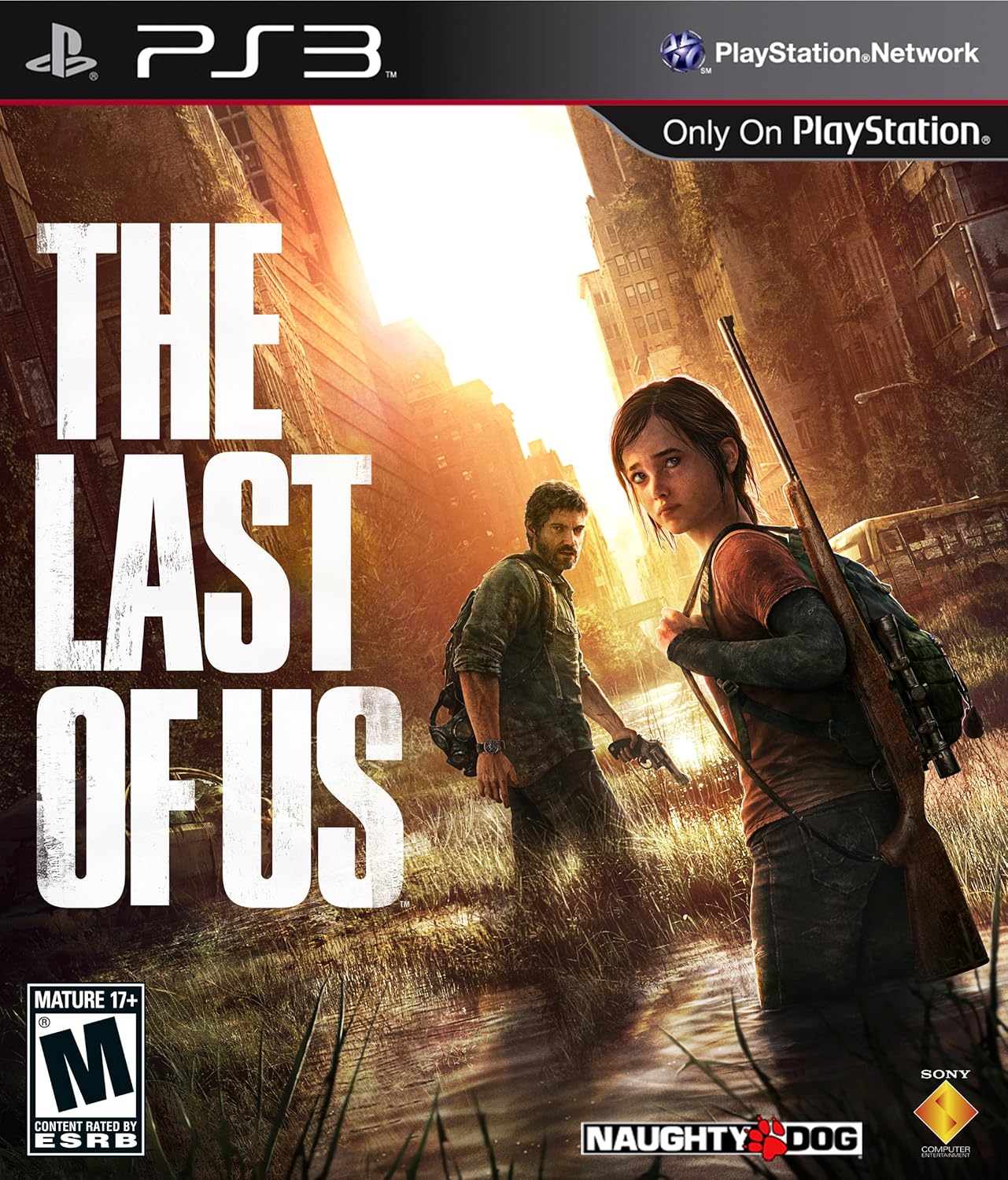
There are two types of The Last of Us players: those who love the gameplay and story, and those who only love the story. I'm one of the former. I have a hunch that people who didn't like the gameplay were going about it the wrong way. I don't usually like using the "you're playing it wrong" argument, but with The Last of Us, it's easy to approach it from too much of an action or stealth direction, when your best bet is to blend the two. It's a game where you don't want to be mobbed by enemies, and the best way to do that is to both avoid being detected and actively take out any enemies you can without them noticing in order to thin out their numbers. You have a variety of tools at your disposal to get the job done, from improvised weapons you can use up close, to traps you can build and use from a distance, to guns in case you get desperate. Some people like it on easy, some people like it on hard, but if you can make the combat in The Last of Us work for you, it's among the most satisfying that you can experience. And as I mentioned, the story is awesome too. Assisted by fantastic graphics and sound design and great voice acting and mo-cap work by the cast, they take something as tired as yet another zombie apocalypse and wring it for all it's worth emotionally. It has all the weight and power of The Walking Dead while still having a robust action/adventure game behind it. It's just one of the best games to come out in years.
Delayed Entry
This is the best game that wasn't released in 2013 but I didn't play until then.
Super Mario Galaxy (Wii)
With all due respect to Super Mario 3D World, Super Mario Galaxy is the real deal. Despite being six years old when I played it, it was amazing how good it was. It takes what I loved about Super Mario 64, improves on its faults, and brings it way into the future with its take on how crazy a platforming game can act while still being comprehensible. While some areas resemble a typical Mario environment, it really shines when it takes the "galaxy" part literally and has you hopping between interstellar objects floating in space with their own gravity. It's incredibly disorienting when you first start running around on what appears to be the ceiling, but once your mind reorients, you'll find yourself doing all sorts of crazy things and not thinking twice about it. As a bonus, playing it after watching Gravity gave me multiple opportunities to freak myself out by nearly floating away into the endless void. The motion controls are merely competent and I wish I could have played it in something higher than 480p, but I can't blame the game for Nintendo's issues with hardware.
Monday, January 13, 2014
Best Games of 2013
Sunday, February 5, 2012
Game Update 20: DLC Round-Up 5
It's getting close to a year since I've done of these. I'm not quite as focused on seeing every piece of content from every game I play as I used to be.
Bioshock 2: Minerva's Den

Minerva's Den has a reputation as one of the best DLC add-ons for a game ever made, and it's well earned. If you didn't need to buy Bioshock 2 first to play it, I'd say you could just skip it and play Minerva's Den to get all you need out of the experience. It serves as a sort of smaller version of the main game, again having you play as a Big Daddy and collecting most of the same equipment as you experience a story that's a lot more tightly written and emotionally effective than the main game's. It always seems a bit odd to focus on praising the narrative of a video game, especially a downloadable add-on, but Minerva's Den really is exceptionally well conceived and executed. Worth checking out even if you didn't love the main game.
Deus Ex: Human Revolution: The Missing Link

Another add-on that acts as a microcosm for the main game, The Missing Link explores a gap in Human Revolution's story and basically allows you to make a new Adam Jensen from scratch that you will use for a few hours before the story wraps up and connects back to the main plot. You begin on a ship and eventually end up on another secret base, which you can either sneak or shoot your way through until you reach the ending. Obviously this DLC doesn't capture the other side of the game that lets you just walk around and explore, and there were a few annoying aspects of the level design, particularly the way the mission requires you to go back and forth in the same space repeatedly and pass through the same extremely slow doorways until you get sick of them. But if you really enjoyed Human Revolution like I did, it's hard to say no to another clandestine base to infiltrate, especially if you can get it on sale.
L.A. Noire: Rockstar Pass

None of the DLC for L.A. Noire was very substantial, but the way Rockstar distributed it was very cool. There were several individual cases that were available for download for okay prices, but if you knew you wanted to play all of it, you could plop down a little extra for the "Rockstar Pass" and get all of it as it came out at a lower rate. It encouraged people to pay more up front with the knowledge that they wouldn't miss anything. The cases themselves seem like they were merely snipped out of the main game without much thought, some of them even revealing certain story elements that were referred to "later" in the main plot without explanation. The original game was plenty long enough, so I didn't feel cheated, and the cases themselves were a natural extension of what made the game fun in the first place. Neat investigations and adequate action sequences abound.
Portal 2: Peer Review

The best kind of DLC is free DLC, and Valve knew that when they put out Peer Review, an extension to Portal 2 that added something similar to the challenge mode from the first game that was missing in the sequel, and more importantly, added a new section to the already stellar co-op campaign. This section mixed and matched various concepts from earlier in the co-op to put together some really fiendish puzzles, creating perhaps the most difficult (and no less entertaining) Portal gameplay that I've experienced. And of course it's framed within the context of Portal's very funny and entertaining universe, which means plenty of new GLaDOS quips and robot antics to laugh at. It's hard to get a better value for your no dollars.
Sunday, June 26, 2011
Bioshock 2
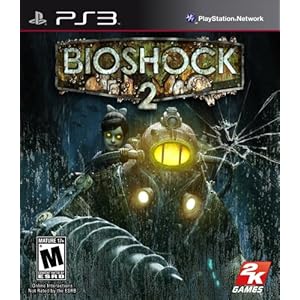
The most interesting thing to me about Irrational Games taking the Bioshock name and sticking it on a game that takes place in a city in the sky is what it means for this game. When Bioshock 2 was announced (or really just when someone at 2K said there would be sequels), a lot of people complained that the game didn't need it, that its concepts had been explored and its story resolved. I didn't dislike the concept of another game, because I loved the original and thought that more could be done with the setting. But when they started showing off Columbia last year, the complaints started to make sense - if you can continue the franchise with the same core concepts without returning to the same location, then why did this game need to exist? It just makes things confusing. If Bioshock doesn't mean Rapture, then why does this game get the "2", instead of the one that really pushes things forward? Bioshock 2 isn't a bad game, but subsequent announcements have made it feel less like a full sequel, and I thought it focused on the wrong part of the original to expand upon.
The game takes place almost a decade after the first, with the original protagonist long gone, putting you in control of one of the first truly successful Big Daddy experiments, a man who found the city on his own and was then bonded to Eleanor, a Little Sister who happens to be the daughter of Sofia Lamb, a woman with opposite ideals to Andrew Ryan who took over the city after his death. Playing as a Big Daddy doesn't fundamentally alter the gameplay experience, as you still acquire Plasmids and weapons and use them in conjunction to fend off Splicers, gain control of Little Sisters, and make your way towards the finish line. I do like that the weapons are different, with at least a graphical facelift on some of the similar ones and some new features, and the brief underwater segments are a nice break from regular play. The Plasmids are pretty much all the same though, and while dual wielding makes things a bit smoother, it's pretty much the same game. The new areas seem to fit in with the setting that previously established and the new characters are just as out of their minds as the old ones, though they all still look like the same kinds of places and the series' brand of insanity in its characters is pretty familiar by now.
While its at its core a very similar experience, on area they seemed to really ramp things up is combat, which was honestly no one's favorite part of the first game. There's just more of it you have to do, assuming you go after the Little Sisters in order to buy the power-ups you'll need to get by later on. In the first game you had to kill a Big Daddy in order to rescue or harvest the girl he's protecting, but now to max out the Adam that pays for your upgrades, you have to kill a Big Daddy to grab her in the first place, protect her from waves of enemies as she draws Adam out of two separate corpses, and fight one Big Sister on every level, which is basically a faster and more dangerous Big Daddy. I just got fatigued at a certain point fighting the same kinds of enemies over and over again. Setting up traps and mixing and matching Plasmids and weapons is fun to be sure, but after a while you get bored with experimenting and just want to get to the end. I actually wonder now how hard it would be to play through the game skipping most of the Little Sisters,which would reduce your abilities but also reduce the time you spend fighting everyone. The game practically overwhelms you with supplies you can find in every nook and cranny, and even if enemies kill you you just respawn at the nearest Vita-Chamber anyway.
What really impressed me and most others about the first game was the atmosphere of the unique setting and the story. The problem with Bioshock 2 is that the setting is no longer unique, and the atmosphere is less effective when you've already played a full game using it. They're just out of tricks at this point. The first game wasn't really scary, but there was something fascinating about exploring a city intended to be an underwater utopia that went completely to hell very recently. All Bioshock 2 can do is more of that, and after at least 25 hours total spent in the city, I'm kind of over it. By the last couple levels I was just tired of picking up giant tape recorders and listening to one more sad story about how things went wrong. The plot of Bioshock 2 does a nice job of building off the first and arguably has a much better conclusion, but it also doesn't have a single moment as singularly memorable and powerful as the one from the first game that everyone remembers. There are certain parts of the last couple areas that are as inspired as anything the series has done, but by that point I just wanted to be done with it. I'm not really sure what it is, because usually I'm fine with sequels, and I played the first game way back when it came out so I should have been fully ready for another by now. I guess there's just a certain feel to the experience that made me only really need to go through it once. Or maybe the combat in the first game was easy enough that I could overlook the fact that it wasn't what interested me about the experience, while this time it was a struggle to enjoy the other parts of the game because of the constant fighting. In any case, it is a fun, well made game, but not the great one its predecessor was. In any case, I'll still check out the add-on that everyone raves about.
Monday, January 14, 2008
Best Games of 2007
It was a banner year for video games, and I didn't even get to play some of the biggest ones, like Halo 3, Mass Effect, and Super Mario Galaxy. I liked The Darkness, but it doesn't quite stand up with the year's other great shooters, and had fun with Ninja Gaiden Sigma, but haven't got around to finishing it since I don't find challenge for its own sake particularly compelling. Sam and Max's first season of episodic adventures was also a pretty good time. I decided to only list a game as multi-platform if I played it on console and it's available on more than one. Don't ask me why. Luckily, that's consistent with last year's list.
Best of 2007
7. Assassin's Creed (Multi)
It got a lot of flack for not reaching its potential, but its potential was so absurdly high that I can't fault it that much for it. I expect a lot more from the obvious sequel, but I thought Assassin's Creed was a great start for a potentially tremendous series, with excellent core mechanics, a wonderful feel, and a very intriguing storyline, even if the normal missions were as repetitive as hell. It seems a little rushed and empty at times, but I still had quite a good time running through the cities and eviscerating unwitting guards like a parkour ninja.
6. Uncharted: Drake's Fortune (PS3)
Another first installment of a series with a possibly great future. It dips its toe in the pool of frustration once in a while, but never dives in like the Jak franchise did. It doesn't particularly excel in any one area, but it's a good jack-of-all-trades kind of game; fun shooting, fun traversal (although it can't match Creed's smoothness), great graphics and sound, excellently presented and fairly interesting storyline. If they can just add some depth to the puzzle elements and keep the environments fresh, Uncharted 2 should be fantastic.
5. God of War II (PS2)
Perhaps the last great game of its generation, God of War II helped it go out with a bang. Based on the fact that the PS2 is still selling, we're going to be seeing things like Persona 3 and enjoyable ports once in a while, but I still see this as the last stand. It looks pretty terrific for a PS2 game, hitting you right in the beginning with the absurdly epic battle against the Colossus of Rhodes. It gets bigger from there, as they keep what was great about the first game, mixing easy-to-use but entertaining combat with functional puzzles and platforming, while evening out the pacing a bit to keep it fun throughout. Of course, they set up the sequel at the end, leaving fans to wonder how incredible the next game will be on PS3.
4. Call of Duty 4: Modern Warfare (Multi)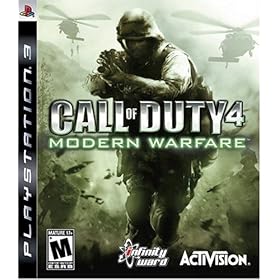
I don't have as much perspective on this as the other games since it was the last thing I finished, but I can still see it was a step forward for first-person shooters, maybe not reinventing the wheel but making it a damn smooth ride. I played the first couple games on PC, but as the series has transitioned to be more console focused, it's still just as gripping and entertaining. Probably the best pure shooting-things game of the year.
3. Ratchet and Clank Future: Tools of Destruction (PS3)
This is a pretty personal choice, as Tools of Destruction didn't do much to push gaming forward, it's merely another great entry in one of my favorite series. It had been some time since the last true game was released, but I settled right into the Ratchet groove as soon as the game started, running around, blowing up everything in sight, enjoying the various diversions, collecting experience, and just having a fun time. The ending left you hanging, but you don't mind too much when you can jump into challenge mode and keep going after all the hidden extras.
2. Bioshock (360)
The best game story of the year, and not just because of the content, but because of how well they use the medium itself to tell it, defying expectations and keeping you immersed in a pretty incredibly designed experience. Big Daddies are still awesome, mixing tonics and plasmids is still good experimental fun, and the encounter with Andrew Ryan is still one of gaming's best moments ever. The gameplay is still stuck somewhere between real shooting and a rich first person RPG experience, but gameplay was the least important aspect as far as I was concerned.
1. The Orange Box (PC)
I wasn't sure at first whether to count this, as it sort of seems like cheating. I didn't review it as a single package. After all, it's not one game, it's five, two of which I've already played before. But even without the old content, I still got more fun out of it than anything else this year. Episode Two is an excellent continuation of my favorite FPS series, Portal is a brilliant, hilarious, brain-twisting experience, and Team Fortress 2 is the most fun I've had playing online since Battlefield 2. It's kind of a cop out, but The Orange Box is the best gaming value you can get for normal retail price this year.
Sunday, November 11, 2007
Bioshock

As a pure first-person shooter, Bioshock isn't that great. The variety of weapons isn't bad, and the plasmid and tonic super-powers that give you an edge are fun to play with. There's a lot of enjoyment to be had from sending swarms of bees after your enemies or launching them into the air with a small whirlwind. But the shooting controls are a little off compared to more dedicated games, and it can get tiring fighting the same stupid enemies over and over again. Even Big Daddies, one of the most interesting foes to be introduced to games in a long time, lose their edge after you've spent enough time around them. But while other shooters are good because of the gunplay, Bioshock is good because of everything else.
Rapture, the underwater capitalistic utopia that has fallen into chaos, is one of the best realized and most intriguing game settings I've ever seen. Because of something about the design, the game can be a bit mentally taxing to play, but I kept coming back partly because the world is so interesting. It's a hip 1950's society gone wrong, and just surveying all the horrible things that have happened is quite an experience. Scattered everywhere are audio diaries that fill in the ample backstory, while at the same time revealing gameplay hints. A lot of them are cryptic, but if you pay attention you get plenty of information to make the experience more fulfilling. Part of me wishes it was a bit more like Half-Life, introducing you to the world in a normal, peaceful state, and then having it all hit the fan in front of you. But they chose to go a different way and it works well enough. There's a sort of horror vibe with the game, although not much of it is legitimately frightening. It's not like there are failed attempts at scares though, it's just a slightly different tone, being pervasively creepy without going for visceral shocks. There are a few gameplay climaxes with larger scale combat, but in general the pace is a bit stately, with a constant state of semi-tension instead of a repeated rise and fall. This is also reflected in general design, with lots of exploration and encouraged scouring of the environment, with some added RPG elements such as a commerce system and the ability to construct your own supplies. You can also hack the various security systems and supply machines using a minigame that isn't that interesting and doesn't make much sense, but it can provide some fun if you liked Pipe Dream.
You can't really talk about Bioshock without talking about the actual story that takes place while you're playing. There's a bit of mystery about who you really are and who's on whose side. There are some stunning twists and revelations that take a while to come about, but add a great deal of satisfaction to the experience. It's very rare for me to really be genuinely surprised by a game story, but they pulled it off. There's one line that will be forever engraved in my memory. The ending depends on a choice you make near the beginning of the game, and the two options are perhaps a bit too simply cut-and-dry for the otherwise very intelligent tale. Still, the plot, both in the content and presentation, is pretty terrific, and a huge reason why Bioshock is one of the best games of the year.

































